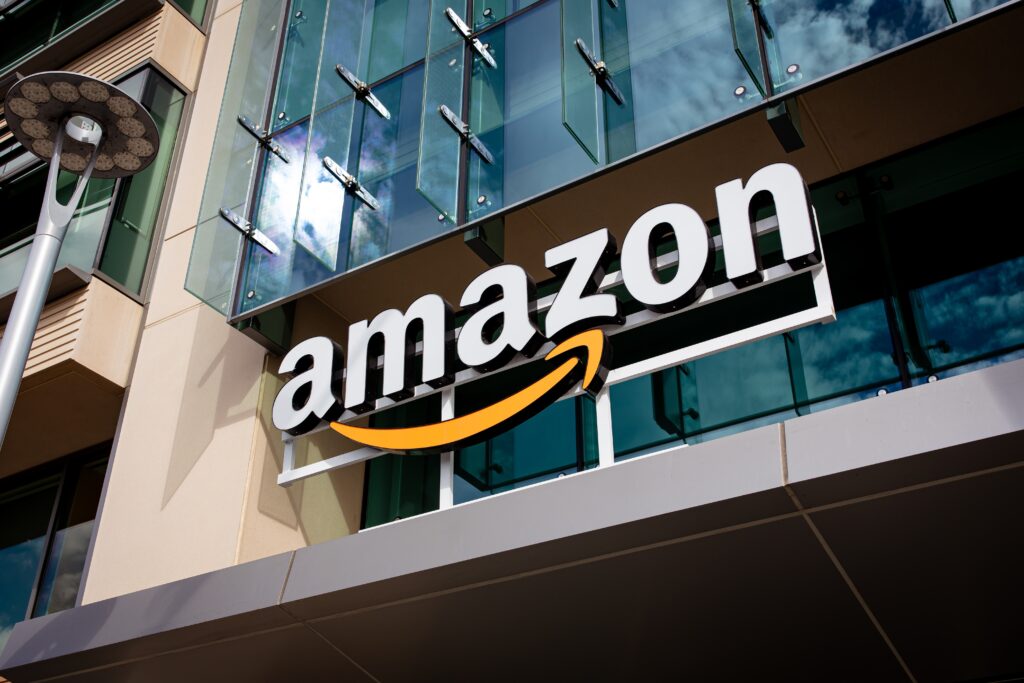U.S. President Donald Trump called Amazon founder Jeff Bezos on Tuesday to protest reports that the retailer planned to highlight the cost of new tariffs for shoppers. The call followed growing concerns that public price disclosures could undermine Trump’s trade strategy.
Amazon later confirmed it had reviewed the idea. The company had considered adding tariff labels on Amazon Haul, its low-cost shopping section built to compete with Shein and Temu. However, the firm stressed that it dropped the plan and never meant to apply it to its main platform.
The move by the White House to address the issue publicly shows how sensitive tariff impacts have become. Experts say higher duties on imports may push prices up and increase the risk of a U.S. recession.
White House Blasts Amazon Over Proposed Tariff Display
During a press conference celebrating Trump’s first 100 days in office, Press Secretary Karoline Leavitt weighed in. She said Trump viewed Amazon’s plan as “political and hostile.”
“This is exactly why Americans should buy domestic products,” Leavitt said. She also questioned Amazon’s motives, noting the company made no similar move during earlier inflation spikes.
Since taking office in January, Trump has reimposed tariffs on many imported goods. He argues the policy supports U.S. manufacturing and boosts national revenue. While a few exceptions have been made, most imports now face at least 10% in tariffs. Items from China are hit even harder—some with tariffs of 145% or more.
Tariffs Impact Supply Chains and Prices
These tariffs are already reshaping how products move across borders. Items like strollers, umbrellas, and gadgets—often sourced from China—have become harder to find or more expensive.
Retailers such as Shein and Temu have already warned customers about price increases. They’ve adjusted pricing models to reflect the added costs.
Roughly 50% of Amazon’s third-party sellers in the U.S. are based in China. This means any tariff-related decision could affect a wide group of vendors and millions of customers.
News first broke about Amazon’s internal discussions when a source shared details of the proposal. Amazon spokesperson Tim Doyle later confirmed the talks. He explained that the idea was specific to Amazon Haul and had already been scrapped.
Why Amazon Considered the Change
The company began discussing the idea after the U.S. ended a rule that had exempted low-value imports—those under $800—from tariffs. Once that protection expired, costs rose across the board.
According to people familiar with the matter, Amazon decided to drop the plan before Trump voiced concerns. The administration’s response, they say, did not influence the final decision.
Trump Applauds Bezos for Quick Response
Reporters asked Trump about his call with Bezos during a press event. He responded warmly. “Jeff Bezos was very respectful. He fixed the issue fast. He did the right thing,” Trump said. “I like him.”
Despite years of public clashes, Trump’s praise stood out. In the past, he accused Amazon of dodging taxes and criticized The Washington Post, which Bezos owns. Meanwhile, Bezos had openly questioned Trump’s tone and once joked about launching him into space.
Still, Bezos joined Trump’s inaugural celebrations in 2017. He also backed parts of Trump’s agenda, including lower taxes and fewer regulations.
A Long History of Conflict
In 2019, Amazon filed a lawsuit against the Pentagon. The company claimed that Trump interfered in a $10 billion defense contract. According to court filings, Trump allegedly tried to block Amazon due to his personal dislike of Bezos.
Although that case has faded from public debate, this week’s phone call shows their relationship remains under scrutiny.
As Trump pushes ahead with tariffs and global trade shifts, businesses like Amazon will need to adapt quickly. The balance between transparency and politics will likely remain a key issue in the months ahead.
